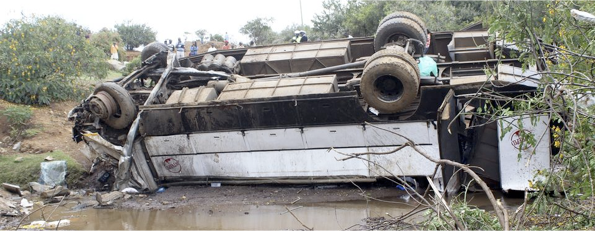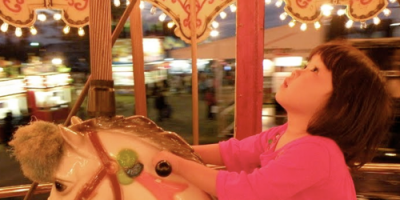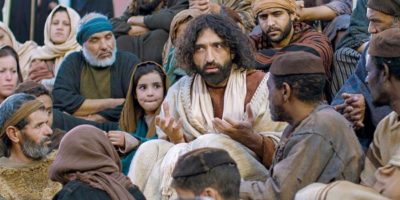Years ago I took my life in my hands travelling by public bus from Nairobi to Kitale in the north of Kenya. As we passed several wrecks of buses at the side of the road, I began to wonder the wisdom of my choice of transport.
Hopefully the situation has changed since, but then it was very common for the drivers to chew khat, an amphetamine-like stimulant causing mild intoxication. Combine that with a popular Muslim fatalism that everything that happens is the will of Allah (inshallah) and you get one very scary ride.
Although I was sitting near the back, my eyes were glued anxiously on the road ahead. The driver was overtaking vehicles on blind corners and squeezing his vehicle through impossible gaps. At one stage I actually yelled out to the driver, “Don’t do it!”. None of the surrounding passengers seemed to take any notice of this overstrung white guy. The driver certainly didn’t. I could do nothing but pray and hope in God. Obviously I lived to tell the story.
Petals
Global developments over the past few weeks have reminded me of this trip. With an unpredictable and erratic driver at the wheel, insulting and confusing friend and foe alike, the international community seems like a careening vehicle, an accident waiting to happen.
Concerned about the situation our times have brought us to on both sides of the Atlantic, a small group of Christian thinkers and activists from various European countries east and west convened near Schiphol last week for reflection on what our Christian response should be. The invitation was sent out with the ominous title, ‘The petals are falling off’ – a reference to another image of western society, as a vase of flowers cut off from their roots, now beginning to wilt.
We should not really have been caught by surprise, we realised. After all, we have been chasing the secular myth of progress for decades. This myth is being exposed now as the parasitical nature of secularism is becoming more evident. While we like to talk of equality, dignity, solidarity and freedom, we have forgotten the biblical roots of these concepts. Schuman and Delors warned us decades ago that a soul-less European project, a Europe without spirituality and meaning, was doomed. Sooner or later the game would be over. Who knows if we have reached that point?
As on my scary ride, we need to pray and hope in God. That was our starting point as we reflected together on Psalm 25, asking what it taught about David, about God and about those who fear God. David consciously chose to lift up his soul to God and to hope in him ‘all day long’ (vs. 5). Our trust is firstly to be in him, not in human leaders or worldly systems, including democracy, parliaments, welfare states, pension funds, human progress or international law. Where–honestly–is our faith? our trust? our expectation? we asked ourselves.
Can we trust God to use negative circumstances to further his purposes? Joseph’s slavery in Egypt was turned around to save his people; Judah’s exile was a purging of the remnant; the crucifixion was the turning point of history; Paul’s shipwreck brought healing and salvation to the Maltese… His ways are higher than ours. All his ways are loving and faithful (vs. 10).
Grassroots
‘May integrity and uprightness protect me’, David prays. And we should too. Our responsibility is to live out the values of God’s character: love of neighbour and enemy, truth, justice, mercy, grace and forgiveness, seeking the common good or the welfare of our community, city, country, continent and planet. We warned ourselves against being swept up in the anger and hostility swirling around us from all sides, polarising into ‘us’ and them’ camps, forgetting Solzhenitsyn’s revelation that the line separating good and evil runs through every human heart.
Hoping in God however is not a passive attitude. Sometimes it requires confrontational, sacrificial action, as with Martin Luther King’s human rights movement which cost him his life. We saw we needed to discern when populism was healthy and when it was toxic. Do the outcomes reflect love, truth and justice? The crowds pouring out on the streets and squares of Romania this past week to protest government plans to release corrupt political colleagues from prison represent another bottom-up movement, a positive ‘populism’.
The Let’s Bring Them Here car parade planned for March 6 in Brussels is also a grassroots action reflecting God’s character, to remind EU leaders of their promises to relocate tens of thousands of asylum-seekers trapped in Greece. So far their pledges remain largely unfulfilled, leaving thousands of people languishing on the doorstep of Europe.
May God liberally give us gifts of hope, grace and discernment in these unsettling times–to make a difference for the good of his kingdom.
Till next week,



